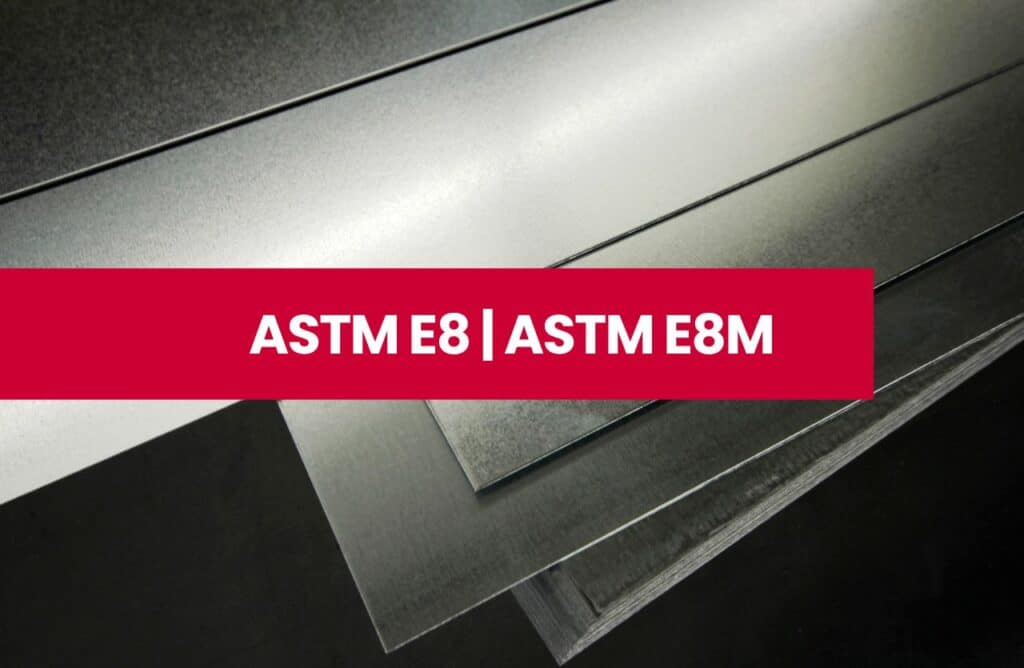
Threaded fasteners such as bolts, screws and nuts are essential components in mechanical and structural constructions. Their reliability and safety depend on the accuracy of tests that verify their strength and compliance with quality standards. Among the most widely used international standards are UNI EN ISO 898-1, UNI EN ISO 3506-1 and ASTM F606, each of which covers specific aspects of mechanical testing. In this article, we will analyse the peculiarities of these standards, exploring the test methods and properties to be tested.
UNI EN ISO 898-1: mechanical properties of carbon and alloy steel elements
Application and Description of the Standard
EN ISO 898-1 is a standard that establishes the mechanical properties of bolts, screws and nuts made of carbon steel and alloy steel. This standard applies to devices with coarse and fine threads, making it an essential guide for those working with fasteners of various types and sizes.
Mechanical properties verified
The standard requires the verification of several mechanical properties, including:
- Tensile strength: essential to ensure that the fastener can withstand high loads.
- Yield strength: represents the load above which the material undergoes permanent deformation.
- Elongation at failure: indicates the ability of the element to elongate before fracture, essential to assess its ductility.
- Hardness: the resistance to permanent deformation, essential for components subject to repeated loading.
Tensile test method according to EN ISO 898-1
The tensile test is one of the main tests for evaluating the mechanical performance of fasteners. The test is carried out on universal testing machines, which guarantee accurate load and displacement control during the test, ensuring reliable and compliant results.
UNI EN ISO 3506-1: corrosion-resistant stainless steel fasteners
Application and description of the standard
EN ISO 3506-1 covers bolts, screws and nuts made of stainless steel. This material is particularly used in environments with a high risk of corrosion, such as the marine, chemical and food industries. The standard specifies strength classes and test methodologies to ensure that these items can withstand harsh conditions without compromising performance.
Specific tests required
- Tensile strength and hardness: these tests ensure that the stainless steel retains its properties even in hostile environments.
- Corrosion and wear resistance: these tests are necessary to ensure the durability of fasteners.
Tensile test for stainless steel elements
To verify compliance with standards, advanced testing instruments are used to ensure compliance with specific parameters and an accurate assessment of performance in critical environments. The use of strain gauges allows accurate measurement of elongation and yield strength even during tests at extreme temperatures.
ASTM F606: Test methods for threaded and unthreaded fasteners
Application and Description of the Standard
ASTM F606 is a US standard that describes test methods for determining the mechanical properties of bolts, screws, nuts and washers. This standard applies to both externally and internally threaded fasteners and also covers washers and direct tension indicators.
Types of tests required
- Tensile test: measures the element’s ability to withstand tensile forces to failure.
- Load test: ensures that the element withstands high loads without permanent deformation.
- Hardness test and torsion test: assesses the resistance of the element to permanent deformation and torsional loads.
CERMAC universal testing machines for UNI EN ISO and ASTM conformity testing
CERMAC’s universal testing machines are designed to perform tests according to UNI EN ISO 898-1, UNI EN ISO 3506-1 and ASTM F606 standards. The UTM-H and UTM-E series, for example, enable tensile, compression, bending and flexural testing with advanced computer control that facilitates data monitoring and recording.
Main features of CERMAC machines
- Precision and advanced control: thanks to PID control systems and measurement resolution of up to 24 bits.
- Extensometers compatibility: including video extensometers, for precise strain measurement without the need for physical markers.
- Accessories and dedicated fixtures: clamping fixtures and accessories are available to facilitate testing.
What are the main differences between the UNI EN ISO 898-1 and UNI EN ISO 3506-1 standards?
UNI EN ISO 898-1 applies to carbon steel and alloy steel elements, while UNI EN ISO 3506-1 is specific to stainless steel elements, more suitable for corrosive environments.
How are tensile tests performed?
Tensile tests are performed by applying an increasing force until the specimen breaks. Universal testing machines record load and strain values to ensure compliance with standards.
Why is hardness testing important?
Hardness is indicative of the element’s strength to permanent deformation, crucial for fasteners that must withstand repeated loads without losing integrity.
What kind of machines are needed for these tests?
Universal testing machines, such as CERMAC’s UTM series, are designed to perform UNI EN ISO and ASTM compliant tests, equipped with advanced accessories such as electronic and video extensometers for accurate measurements.
What kind of grips are needed to perform these tests?
It is necessary to have special housings with bushings calibrated according to the specimen diameter, as indicated in the reference standards.
Can I use CERMAC machines for testing materials at high temperatures?
Yes, some CERMAC machines are designed for high temperature testing, offering reliability and accuracy even under extreme conditions.
Conclusion
Compliance with EN ISO 898-1, EN ISO 3506-1 and ASTM F606 is essential to ensure the safety and reliability of threaded fasteners. The use of universal testing machines and advanced measurement technology allows high quality results to be obtained, ensuring that each component withstands the specific stresses of its use.
The UTM-H and UTM-E series testing machines are the ideal solution for performing mechanical tests on threaded elements The use of the specific gripping systems designed by Cermac allows tests to be performed in full compliance with the standards, achieving superior accuracy in test results.


